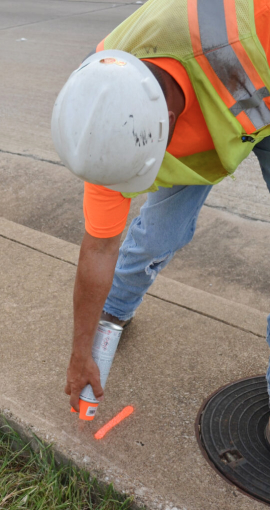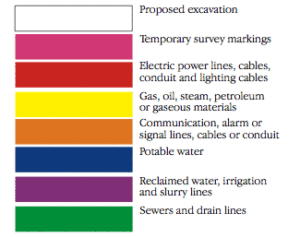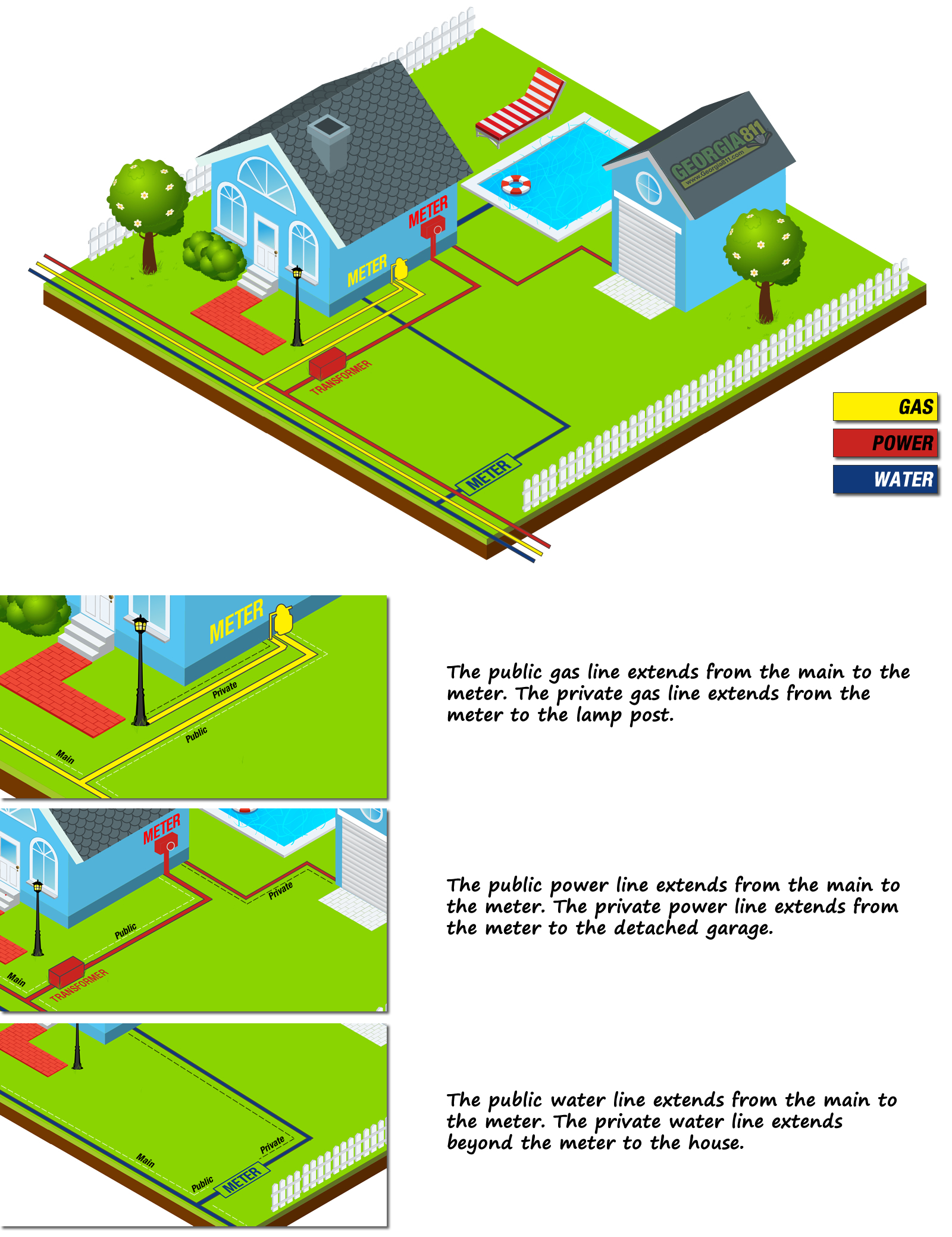





To help determine if your lines have been marked, Georgia 811 provides a service called the Positive Response Information System (PRIS) to help you track the status of your locate request. Simply follow the instructions below.

1 Always check PRIS before excavating.
2 If all utilities have responded with a marked, clear, or no conflict code and there are NO visible and obvious signs of an unmarked utility: you may begin digging.
3 If any utility has NOT responded and there are NO visible and obvious signs of an unmarked utility: wait until after noon on the effective date, contact Georgia 811 to create an additional request, then you may proceed with excavation as long as all other requirements of GUFPA are met.
4 If any utility has NOT responded and there IS a visible and obvious sign of a utility: wait until after noon on the effective date, contact Georgia 811 to create an additional request, ask for your issue to be escalated to a liaison or contact your liaison directly.
5 If any utility has responded as Late: wait until after noon on the effective date, contact Georgia 811 to submit an additional request, and contact the utility listed on the ticket directly.
6 Still no response to an Additional Request? Contact your liaison.

Click Here to check PRIS in the Georgia 811 ticketing system.
At the top menu bar of the ticketing system, click on “View Ticket Responses (PRIS)” to open the ticket search menu
When utility company representatives mark a location, they use paint to identify the type of underground utility. Here is what the color codes indicate:
APWA Uniform Color Guide for paint marks


Contacting Georgia 811 is the correct first step when taking on a project that involves digging. Making sure that utilities are marked before you dig can help you avoid a costly and/or dangerous mistake. However, the utility service providers in your area that are notified by Georgia 811 will only mark public utilities. It is likely that you have both public and private utilities on your property and you will have to hire a private utility locator to mark any private utilities that are in the area where you plan to dig. So, how do you tell the difference between public and private utilities?


Private utilities extend beyond the public utility network and are typically the responsibility of the property owner. Examples would include power to detached garages, barns, pool heaters, and landscape lighting; as well as lines to septic systems, water lines between the water meter and your home, sewer lines between the city or county sewer system and your home, irrigation systems, invisible pet fences, propane, grills, and wells. Homeowners should hire a private locator to get private lines located.
If you need someone to locate private utility lines, you can search online for ‘private utility locating companies near me.’
